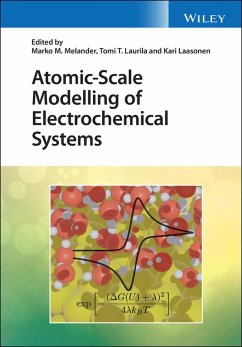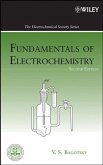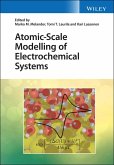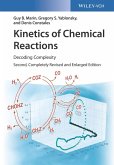Atomic-Scale Modelling of Electrochemical Systems A comprehensive overview of atomistic computational electrochemistry, discussing methods, implementation, and state-of-the-art applications in the field The first book to review state-of-the-art computational and theoretical methods for modelling, understanding, and predicting the properties of electrochemical interfaces. This book presents a detailed description of the current methods, their background, limitations, and use for addressing the electrochemical interface and reactions. It also highlights several applications in electrocatalysis and electrochemistry. Atomic-Scale Modelling of Electrochemical Systems discusses different ways of including the electrode potential in the computational setup and fixed potential calculations within the framework of grand canonical density functional theory. It examines classical and quantum mechanical models for the solid-liquid interface and formation of an electrochemical double-layer using molecular dynamics and/or continuum descriptions. A thermodynamic description of the interface and reactions taking place at the interface as a function of the electrode potential is provided, as are novel ways to describe rates of heterogeneous electron transfer, proton-coupled electron transfer, and other electrocatalytic reactions. The book also covers multiscale modelling, where atomic level information is used for predicting experimental observables to enable direct comparison with experiments, to rationalize experimental results, and to predict the following electrochemical performance. * Uniquely explains how to understand, predict, and optimize the properties and reactivity of electrochemical interfaces starting from the atomic scale * Uses an engaging "tutorial style" presentation, highlighting a solid physicochemical background, computational implementation, and applications for different methods, including merits and limitations * Bridges the gap between experimental electrochemistry and computational atomistic modelling Written by a team of experts within the field of computational electrochemistry and the wider computational condensed matter community, this book serves as an introduction to the subject for readers entering the field of atom-level electrochemical modeling, while also serving as an invaluable reference for advanced practitioners already working in the field.
Dieser Download kann aus rechtlichen Gründen nur mit Rechnungsadresse in A, B, BG, CY, CZ, D, DK, EW, E, FIN, F, GR, HR, H, IRL, I, LT, L, LR, M, NL, PL, P, R, S, SLO, SK ausgeliefert werden.









